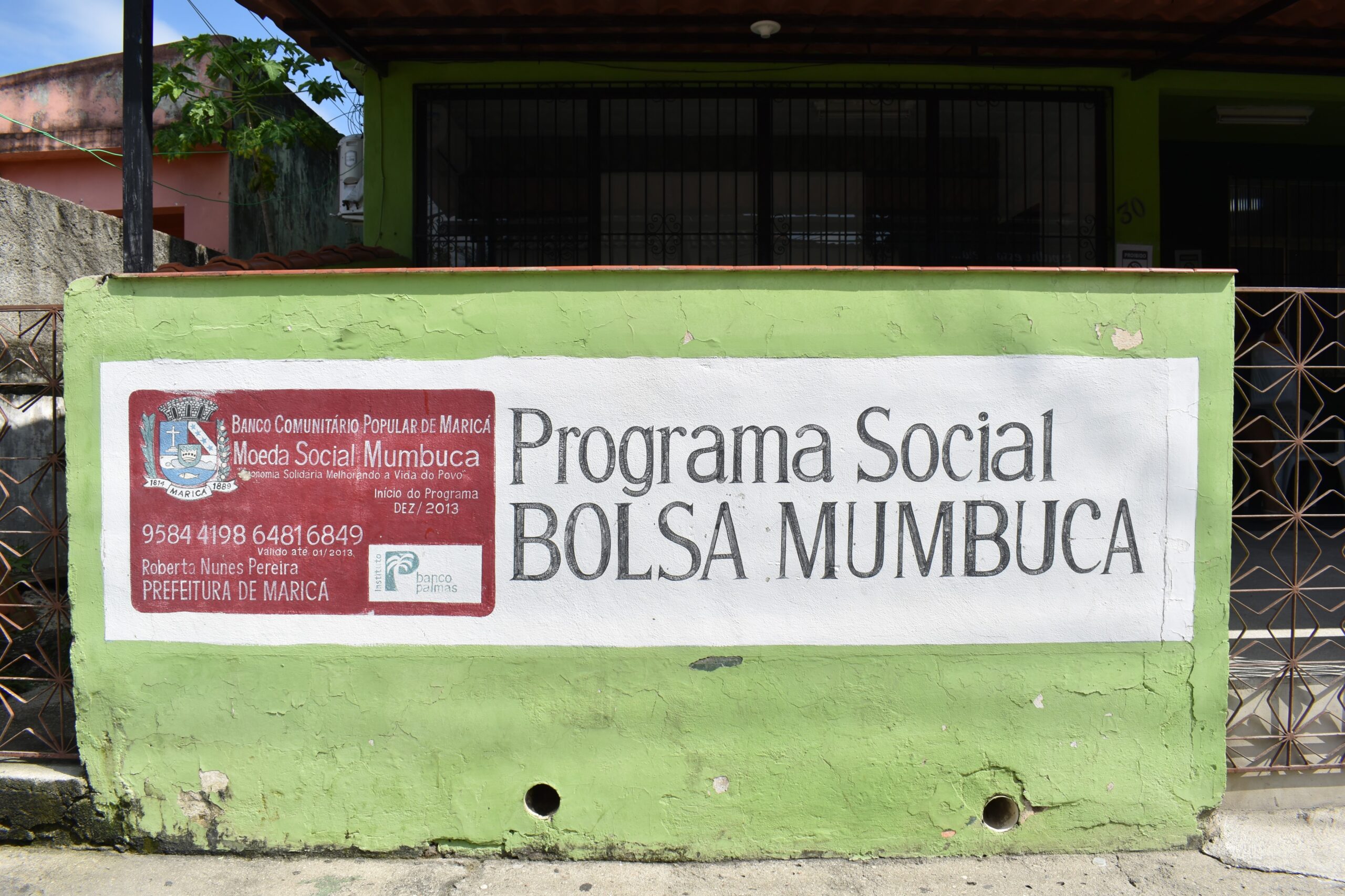New Release: First paper from the Maricá Basic Income Evaluation

Diverse impacts of the largest basic income program in Latin America on socioeconomic outcomes; crisis response use-case
Press Release
The Maricá Basic Income Evaluation is an assessment of a basic income program in the city of Maricá, Brazil. The program, the Renda Básica de Cidadania (RBC, or Citizens’ Basic Income), is one of the largest cash transfer programs in existence. A partnership between the Universidade Federal Fluminense in Niterói, Brazil, and the Jain Family Institute in New York, USA, the study examines the impact of the RBC, an unconditional cash transfer program introduced in 2015 using proceeds derived from oil royalties.
The RBC benefit is paid in a local digital currency called the mumbuca, backed one-to-one by the national currency, which can only be spent in Maricá, a city of some 200,000 residents located an hour outside of Rio de Janeiro, Brazil. The program pays a fixed monthly amount to each individual recipient. The program currently reaches approximately 93,000 beneficiaries among the city’s low- and lower-middle-income households.
Unlike prior studies, The Maricá Basic Income Evaluation looks at a permanent, large-scale policy, not a temporary, small-scale pilot program. Moreover, the lack of conditionalities attached to the RBC benefit means that the research can study the effect of the cash transfers without needing to disentangle them from possible effects of conditionalities.
The central component of the evaluation – a quantitative study based on household, in-person surveys of more than 3,000 individuals – has just been released on NBER. Key findings from this paper include:
- Beneficiaries saw a significant increase in income. Recipient households showed a 9% increase in household income relative to non-recipients households. Consumption did not increase on a per capita level, but rose by 5% at the household level, indicating recipients use some of the increase in income towards consumption.
- There is a displacement of other income through the transfers: The study finds a reduction of USD 79 reduction of household income when the transfer is not taken into account, driven by reductions in labor income. This suggests that the RBC transfer allowed households to change jobs or stay home, particularly during the pandemic.
- Broad and unconditional cash programs can provide outsize benefits to the most vulnerable. The study finds that Maricá’s RBC program had a larger positive impact on households headed by women and on households with minors.
- Maricá’s basic income program may deliver health and education benefits without imposing conditionalities. While conditional cash transfers programs impose conditions in exchange for receiving cash, Maricá’s RBC does not. Nonetheless, the study finds suggestive positive impacts on the health and education outcomes of beneficiaries’ children, particularly an increase in hours devoted to school work and routine doctor visits. However, the effect is not robust to conservative statistical adjustments.
A robust cash-transfer infrastructure can be beneficial in times of crisis. Having a well-established structure for granting benefits greatly facilitates the work of policymakers who only need to calibrate the size or frequency of benefits, dialing up during extraordinary situations like the pandemic or natural disasters, and later dialing back down. In the case of Maricá, the RBC program infrastructure enabled the city to dial up benefits during the pandemic.
Read the full working paper here.
The paper is written by Sidhya Balakrishnan, Roberta Costa, Johannes Haushofer and Fábio Waltenberg. Find out more about this work on the project’s website.
Related
HudsonUP Basic Income Pilot releases year four report
Qualitative and quantitative research on how guaranteed income has affected recipients.
Household Responses to Guaranteed Income: Experimental Evidence from Compton, California
Press release: New evidence on GI from a randomized controlled trial.
HudsonUP Basic Income Pilot releases year three report
Qualitative interviews capture a comprehensive picture of the impact of a long-term guaranteed income pilot.


